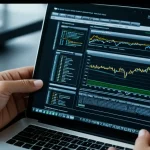The evolution of UK computing hardware and its educational significance
The UK computing hardware history is marked by several pivotal moments that have shaped educational technology milestones from the 1970s onwards. Early British computing innovations like the BBC Micro and the ZX Spectrum introduced affordable, user-friendly devices into classrooms. These flagship devices were essential in shifting educational priorities toward digital literacy and programming skills.
The BBC Micro, developed in collaboration with the BBC and Acorn Computers, became a cornerstone for teaching computing in schools. Its accessibility encouraged widespread use, allowing students to engage with coding and problem-solving early on. Similarly, the ZX Spectrum provided a budget-friendly alternative, broadening access further.
Topic to read : Boost your uk computing hardware’s longevity: top strategies for optimal performance
In recent years, the Raspberry Pi has continued this legacy, fitting neatly into evolving educational technology milestones. Its compact design and versatility support STEM learning in new ways, fostering creativity and hands-on experimentation.
Together, these UK computing hardware milestones have not only offered practical teaching tools but have also driven a sustained focus on integrating technology into education, ensuring students are equipped for the digital demands of the future.
Also to see : Boost productivity with xnomad’s innovative portable displays
The evolution of UK computing hardware and its educational significance
UK computing hardware history demonstrates a remarkable timeline of innovation, beginning in the 1970s with pioneering devices that shaped educational technology milestones. The introduction of the BBC Micro was a turning point, as it became an educational staple by integrating into the national curriculum and encouraging programming skills nationwide. This early device’s accessibility made it possible for schools across the UK to adopt computing as a fundamental subject.
Following the BBC Micro, the ZX Spectrum expanded the reach of British computing innovations by offering a more affordable option, further embedding technology into classrooms. These devices catalyzed shifts in educational priorities, from basic computer use toward fostering digital literacy and logical problem-solving abilities.
More recently, the Raspberry Pi has continued this tradition of influencing educational technology milestones. Its versatility and low cost align well with current STEM teaching methods, promoting hands-on learning and coding skills development. Collectively, these key developments in UK computing hardware history illustrate a clear evolution of tools designed to enhance the educational experience and prepare students for the digital era.
Key UK computing hardware milestones and their introduction into education
The BBC Micro revolutionized computing education when introduced in UK schools during the 1980s. Its widespread adoption directly influenced the history of computers in UK education by embedding computer literacy into the national curriculum. This device elevated classroom learning from basic exposure to interactive programming, setting a solid groundwork for digital skills development.
As schools integrated the BBC Micro in classrooms, educators observed increased student engagement and practical understanding of computing concepts. The success of this project accelerated the growth of computing education across the UK, marking significant educational technology milestones.
This progression helped establish the groundwork for modern computing curricula, emphasizing coding, problem-solving, and critical thinking. The computing curriculum development that followed expanded beyond hardware, incorporating software literacy and computational approaches. The legacy of the BBC Micro remains a cornerstone, highlighting how early British computing innovations shaped teaching methods and curricula, prompting a national shift toward prioritizing digital competence from an early age.
The evolution of UK computing hardware and its educational significance
The UK computing hardware history traces a clear pathway from foundational devices in the 1970s to modern tools shaping education today. Early British computing innovations, namely the BBC Micro and ZX Spectrum, played pivotal roles at different points on this timeline. The BBC Micro’s introduction integrated computing into schools, highlighting a shift toward embedding technology at the curriculum level. It encouraged programming skills development, directly aligning with emerging educational technology milestones.
Progressing through the 1980s and 1990s, the ZX Spectrum expanded access by offering a cost-effective computing option suited to broader classroom adoption. This device helped normalise digital learning beyond elite institutions, reinforcing computing as a core educational priority.
More recently, the Raspberry Pi exemplifies how British computing innovations continue to influence education. Its adaptability supports evolving teaching methods, promoting STEM subjects and open-ended experimentation. Across each era, changes in hardware have mirrored shifts in educational priorities—from basic computer literacy toward cultivating problem-solving, creativity, and coding skills.
This sustained evolution underscores how technological advances have continually reshaped the UK’s educational landscape, ensuring students remain prepared for future digital demands.
The evolution of UK computing hardware and its educational significance
The UK computing hardware history reveals a steady progression from pioneering inventions in the 1970s to today’s versatile educational tools. Key devices like the BBC Micro, ZX Spectrum, and the Raspberry Pi each represent pivotal points in this timeline, marking significant educational technology milestones. The BBC Micro’s introduction brought computing firmly into classrooms, sparking a shift in educational priorities toward programming and digital literacy. Following this, the ZX Spectrum widened access by providing a low-cost alternative, reinforcing computing’s role in schools and accommodating a broader student population.
In recent decades, the Raspberry Pi epitomizes the ongoing influence of British computing innovations. Its affordability and adaptability align with modern pedagogical practices, focused on fostering creativity and critical thinking through hands-on learning in STEM subjects. These milestones collectively illustrate changing educational priorities, moving from simple computer familiarity to comprehensive skills development in coding, problem-solving, and technological fluency.
Ultimately, this timeline demonstrates how British hardware evolutions have continuously reshaped UK educational landscapes, maintaining relevance and driving forward digital competency.
The evolution of UK computing hardware and its educational significance
From the 1970s to today, UK computing hardware history charts a clear trajectory of innovation that reshaped education. The era began with flagship devices like the BBC Micro, which emerged as a powerful tool that integrated computing directly into classrooms. This device not only popularized programming but also laid the foundation for future educational technology milestones by making digital skills accessible at scale.
Following the BBC Micro, the ZX Spectrum played a crucial role by providing an affordable, user-friendly option that broadened access and helped normalize computer use across diverse schools. Its introduction marked a shift toward inclusivity and greater student engagement in technological learning.
More recently, the Raspberry Pi exemplifies how British computing innovations persist in influencing education. Its versatility and cost-effectiveness align with modern STEM education, supporting hands-on experiments and coding. Throughout these successive hardware milestones, educational priorities evolved—from fostering basic computer literacy to emphasizing creativity, problem-solving, and computational thinking—demonstrating how advancements in UK computing hardware history continue shaping digital education.





